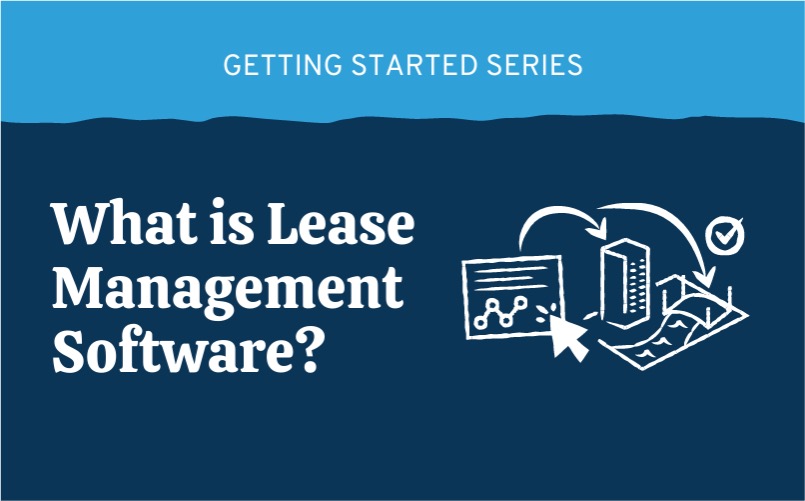Technology is enabling local government, higher education, and healthcare organizations to operate more efficiently, make more informed decisions, and focus on higher value work.
Now with the Governmental Accounting Standards Board (GASB) pushing out new standards to improve financial reporting, technology is playing a huge role in helping organizations navigate the complexities and requirements of standards such as GASB 87, as well as become and stay compliant.
WHAT
Defining Lease Management Software
Nearly every local government, higher education, and health care organization has at least one lease, whether for buildings, land, vehicles, or equipment. Finance teams must manage their lease schedules alongside their debt and other long-term payment obligations in order to identify and address errors and inefficiencies and to produce accurate financial reports and projections.
To do that well, finance teams need tools and systems to help them organize, analyze, store, recall, and share their lease documents and payment schedules.
Lease management software is technology that helps finance teams collect and track their lease obligations, organize and extract data from their lease documentation, generate schedules, manage and record lease payments, and share information with internal and external team members.
WHY
Benefits of Using Lease Management Software
Using lease management software makes compliance with changing accounting standards much easier. But the benefits of lease management software extend beyond compliance.
- Improve accuracy. Traditionally, finance teams have leaned on spreadsheet programs like Microsoft Excel to keep up with their leases.
While relying on spreadsheets seems like a simple and cheap solution, spreadsheets are notoriously error-prone and create data silos across an organization, making it difficult to collaborate or to keep tabs on who has the latest data and information.
Lease management software provides a single source of truth for your data and makes it easy for internal and external team members to work together and share information.
- Boost efficiency. Organizations are constantly worried about adjusting their internal processes to ensure compliance with changing accounting standards, like the rollout of GASB 87, which places new reporting and classification burdens on an organization’s lease obligations.
New and evolving accounting standards like GASB 87 (and GASB 96, which deals with information technology contracts) highlight the value of a lease-specific software solution.
The right lease management solution will address all three phases of challenges faced by organizations looking to implement the new standard: (1) upfront lease organization and data extraction, (2) schedule creation, and (3) ongoing lease collection, management, and compliance.
- Improve collaboration across the organization. Lease management requires strategic alignment across a wide range of stakeholders, including finance directors, controllers, treasurers, accountants, department heads, board members, elected officials, and outside professionals like auditors, lawyers, and advisors.
Lease management software ensures everyone is working with the latest and greatest data and eliminates unnecessary confusion caused by scattered and piecemeal document storage.
As a result, the organization’s internal and external workflows are more efficient, contain fewer errors, and create more opportunities for creative, high-value, and strategic thinking and problem solving.
- Leverage robust reporting. Teams need consistent and accurate reporting capabilities to provide insight and visibility into their lease portfolios.
Lease management software makes it easier for teams to track and report lease payments, manage milestones and deadlines, prepare comprehensive standalone reports, and generate schedules and organize information for their year-end audit.
Lease management software also helps teams track and generate reports on leased assets, which is particularly helpful when dealing with open-ended or master lease arrangements.
WHEN
Pain Points and Challenges Addressed by Lease Management Software
As they continuously meet the challenge of doing more with less, public sector organizations must stay vigilant and cost-conscious for the foreseeable future. McKinsey estimates governments around the world could face a cumulative deficit as high as $30 trillion by 2023.
Lease management is a core function of sound financial stewardship, and dedicated software can help you tackle key problem areas before they spiral out of control. If any of these signs sounds familiar, a lease management software may be a fit for you.
- You need to implement GASB 87. Preparing for GASB 87 implementation and ongoing compliance will be a very time-intensive process. Depending on the number of leases an organization has and the size of the team, it can take 12 weeks or longer for a small team to plan and prepare for GASB 87.
Lease management software can help organizations implement the new lease accounting standard by addressing the upfront lease organization and data extraction, schedule creation, and ongoing compliance. - You’re working with inaccurate data. When your team is working on data in a fragmented fashion, it creates a breeding ground for typos and human error.
Those mistakes compound until they become much harder (and potentially more expensive) to fix. Cloud-based lease management software makes it easy to implement checks and balances to improve accuracy and eliminate opportunities for mistakes. - You’ve underpaid or overpaid a lease. Inefficiency leads to bad outcomes. If your team is working with outdated tools and poorly defined processes, you will likely begin to see late payments, payment errors, inaccurate reporting, or missed milestones (like that automatic lease extension trigger no one remembered to monitor).
If your team is frequently finding it difficult to manage all of your obligations across your lease portfolio, it may be time for lease management software. - You’re having trouble locating information. It can sometimes be a hassle to store and retrieve lease abstracts and other important documents, not to mention track updates and changes to the underlying assets. But lease storage functionality addresses this challenge head-on by providing an easily accessible, cloud-based location to store documents and supporting information.
HOW
Choosing a Lease Management Solution
Lease management software programs allow you to save time on manual data entry and other mundane tasks. Most programs also help organizations implement and maintain compliance with new lease accounting standards.
A lease management solution automates time-consuming and monotonous processes, creating time for teams to focus on higher value work.
But how do you determine which fintech solution will generate the best return on investment for your team?
Below are some recommended features to seek out when evaluating lease management software.
- Integration with a unified debt management tool
- Importing and exporting capability to assist with assembling comprehensive financial reports
- Automatic lease classification
- Ability to share decision tree, documents, and assumptions with auditors
- Automated year-end audit reporting and journal entries
- Secure document management
- Tracking, categorizing, and filtering capability for in-depth analysis
- Automated reminders for important dates and journal entries
- Cloud-based functionality with unlimited users, which offers anywhere, anytime access
- Collaboration functionality and ability to provide access to your internal and external team members
- An intuitive, easy-to-use interface with intuitive dashboards
- Continuous product development that accommodates changing compliance requirements
- Data security and measures to protect against cybercriminals
As governments and nonprofit organizations navigate an increasingly digital future, there will be numerous opportunities to upgrade your fintech stack and leverage more efficient tools and processes.
Lease management software is a critical investment for finance teams to deliver clarity and financial security for their communities and the constituents they serve.
GET STARTED
Experience DebtBook
DebtBook is powerful, easy-to-use, cloud-based debt and lease management software for finance teams in local government, higher education, and healthcare. Our software helps these teams effectively manage their debt and leases in the cloud, driving efficiency, collaboration, transparency, and informed decision-making within their organizations.
As the new standard in debt management and the only consolidated solution for debt and lease management, DebtBook is trusted by finance professionals nationwide. Ready to go ahead and take the next step? Schedule a demo with us today to learn more and see the solution in action!
Frequently Asked Questions
Q: What is Lease Management Software?
A: Lease management software is technology that helps finance teams collect, track, and manage lease obligations. It organizes lease documentation, generates payment schedules, automates compliance tasks, and makes it easy to share information with internal teams and external partners like auditors.
Q: Why do Government and Nonprofits Need Lease Management Software?
A: Local governments, higher education institutions, and healthcare organizations often manage many leases for buildings, land, vehicles, or equipment. Lease management software ensures accuracy, reduces errors common with spreadsheets, improves collaboration across departments, and simplifies compliance with accounting standards such as GASB 87 and GASB 96.
Q: What Features Should I Look for in Lease Management Software?
A: Key features include automated lease classification, secure document storage, audit-ready reporting, integration with debt management tools, automated reminders for key dates, cloud-based functionality with unlimited users, and strong data security measures.
Q: How Does Lease Management Software Help with GASB 87 Compliance?
A: GASB 87 requires organizations to recognize lease obligations on their balance sheets and follow strict classification and reporting rules. Lease management software streamlines the process by handling lease data data collection, schedule creation, ongoing tracking, and audit-ready reporting.
Disclaimer: DebtBook does not provide professional services or advice. DebtBook has prepared these materials for general informational and educational purposes, which means we have not tailored the information to your specific circumstances. Please consult your professional advisors before taking action based on any information in these materials. Any use of this information is solely at your own risk.









.jpg)
.jpg)
.jpg)
